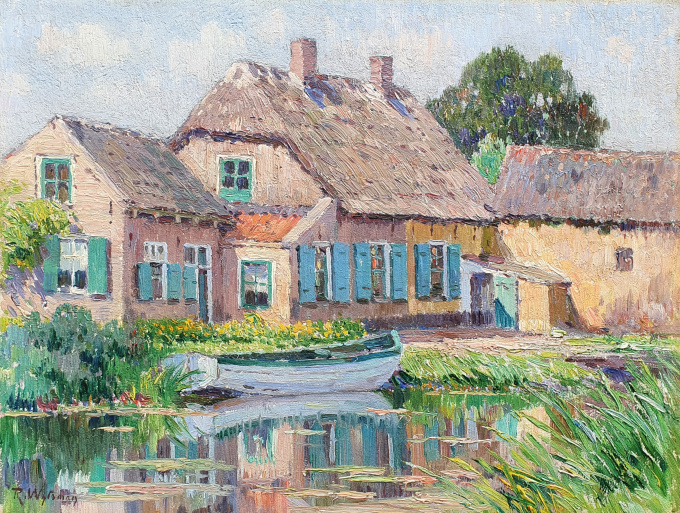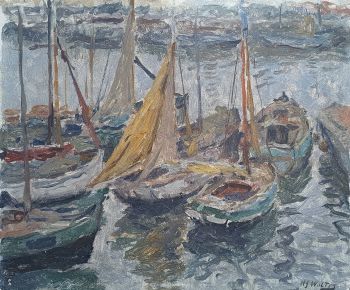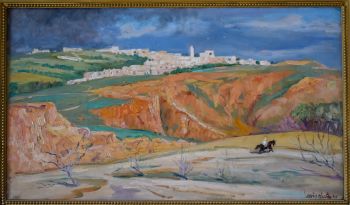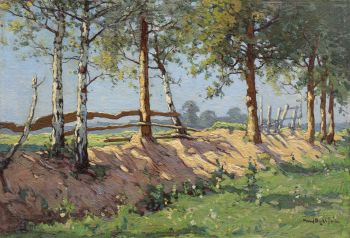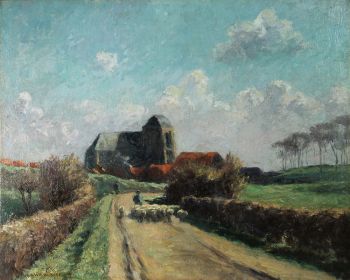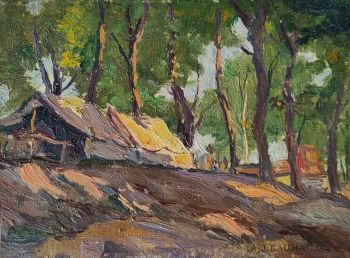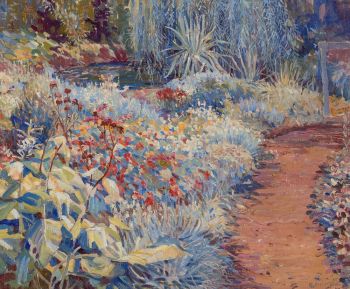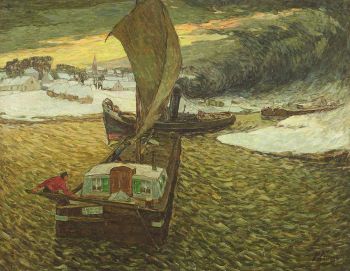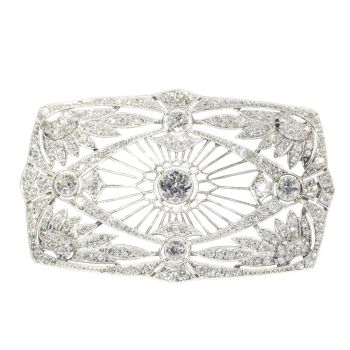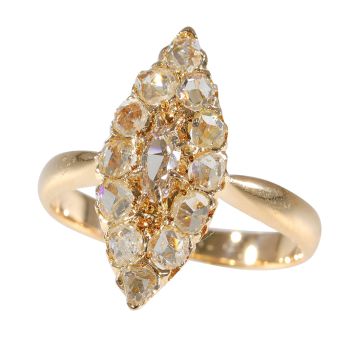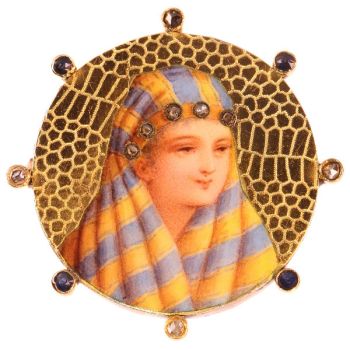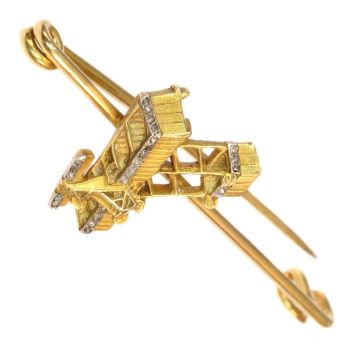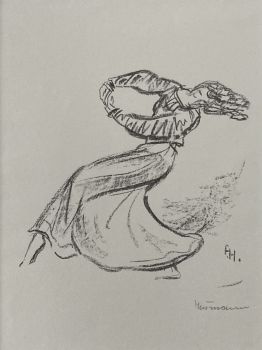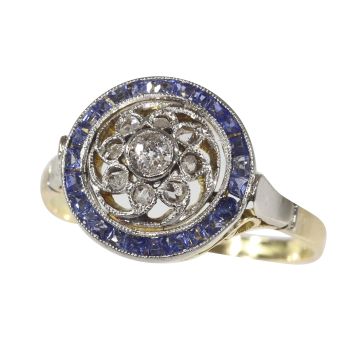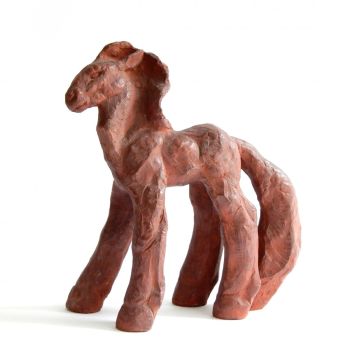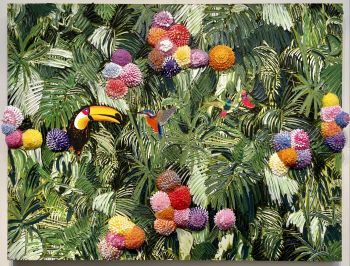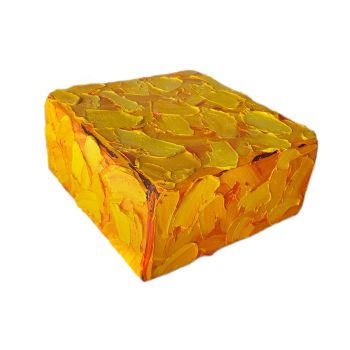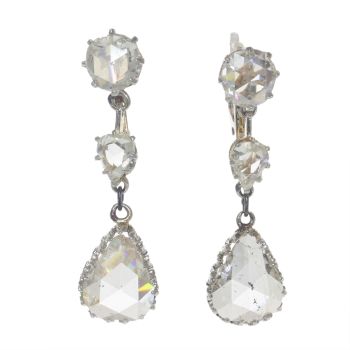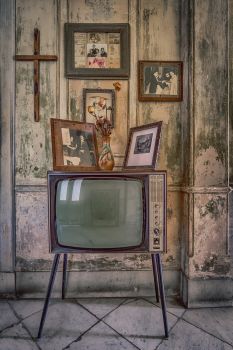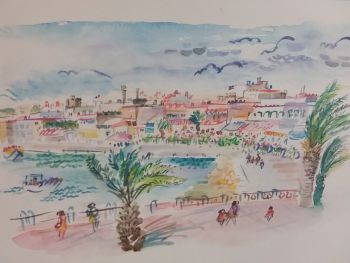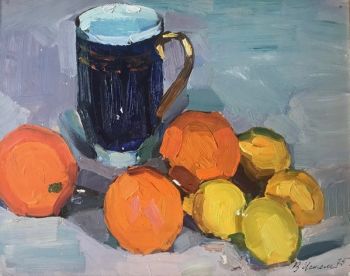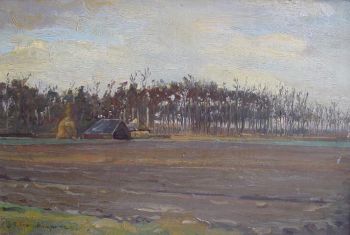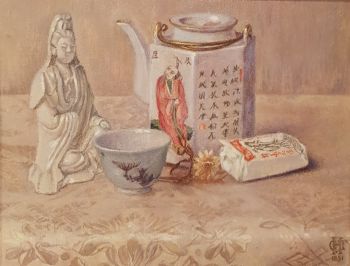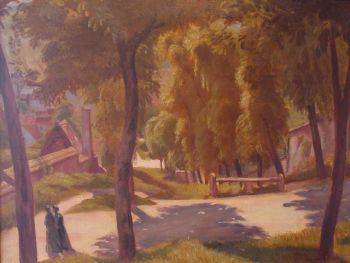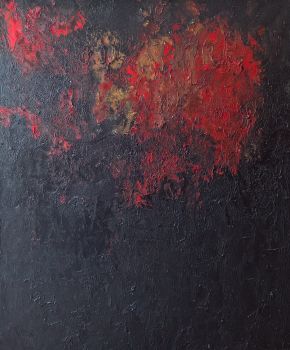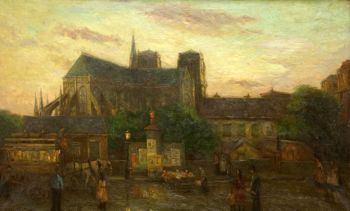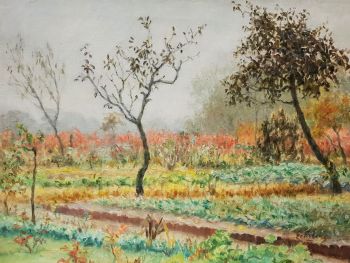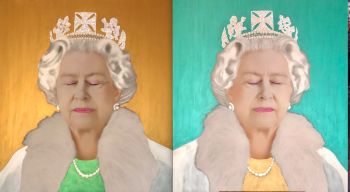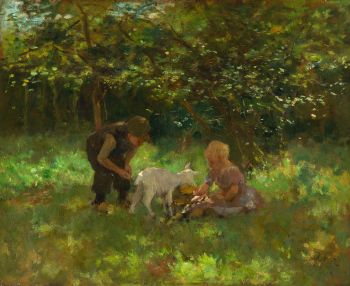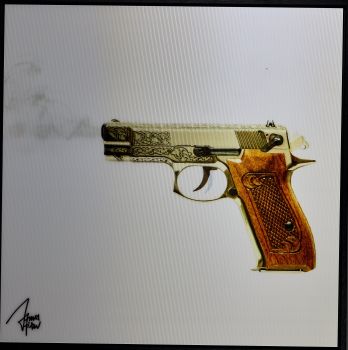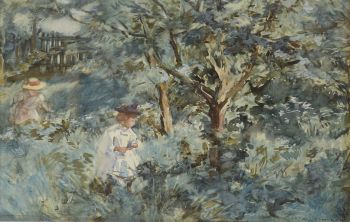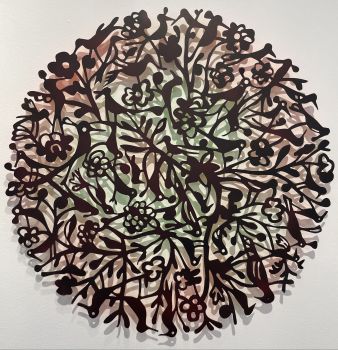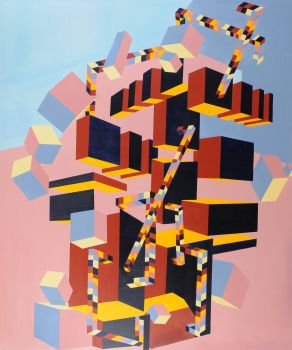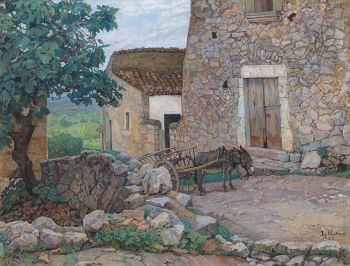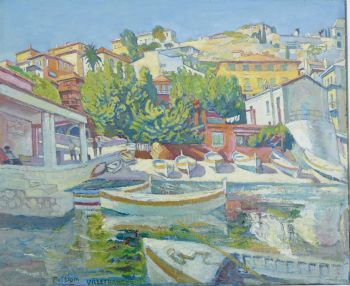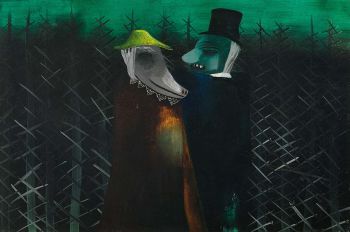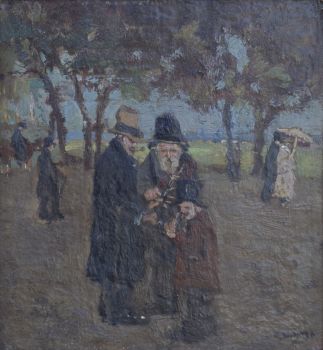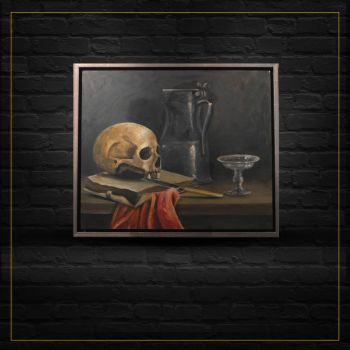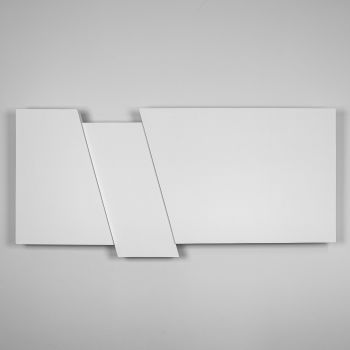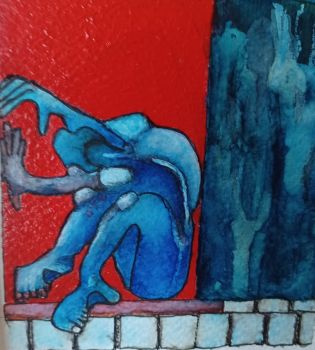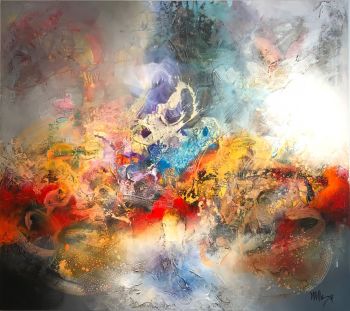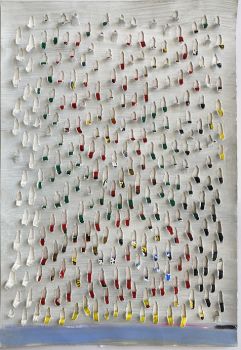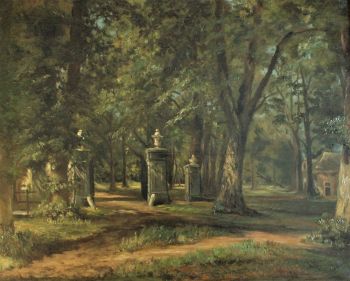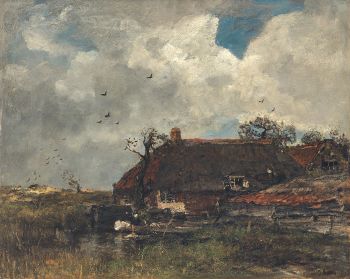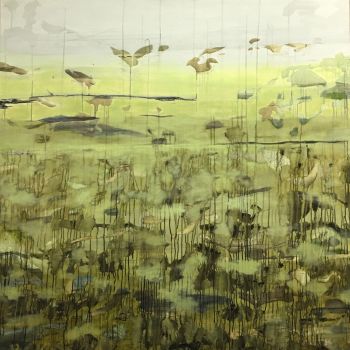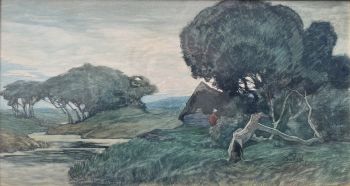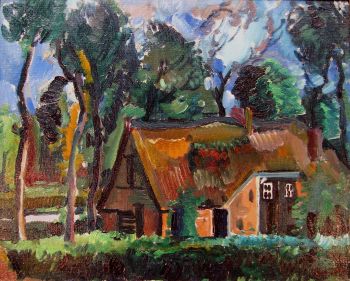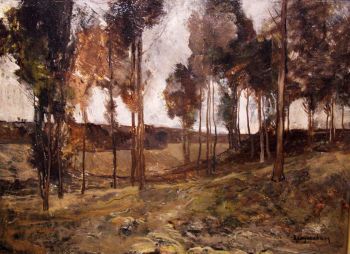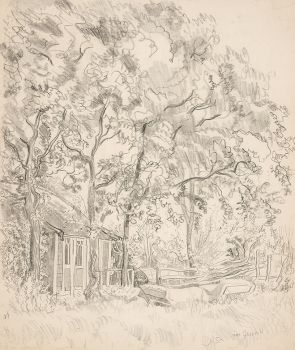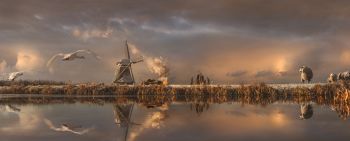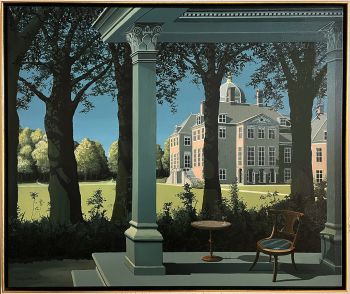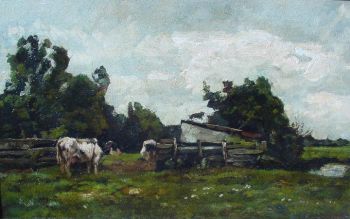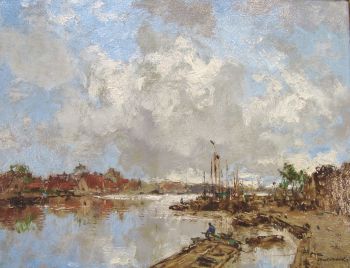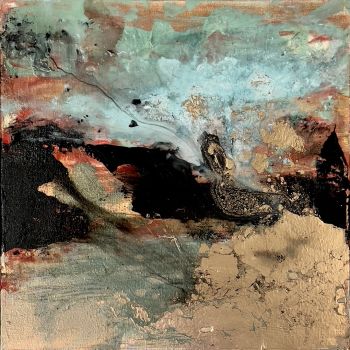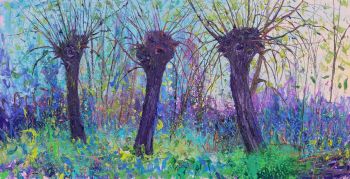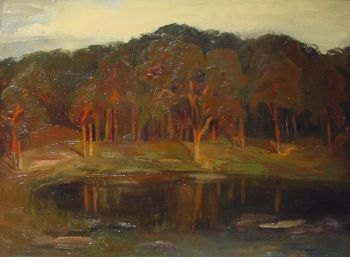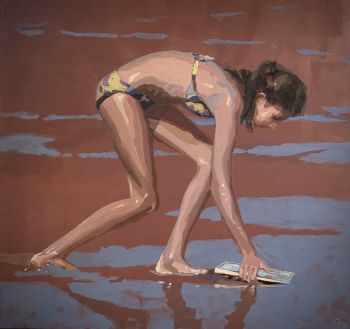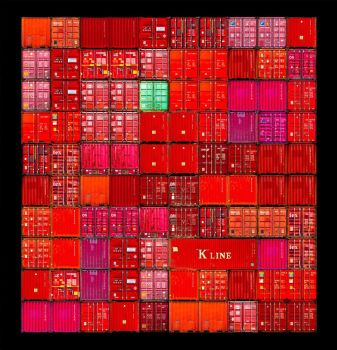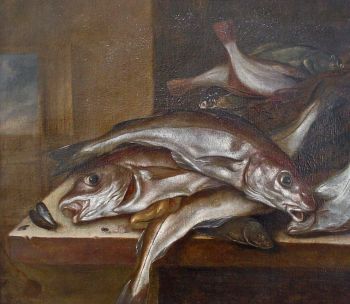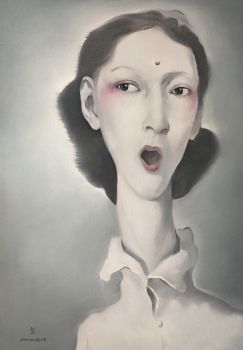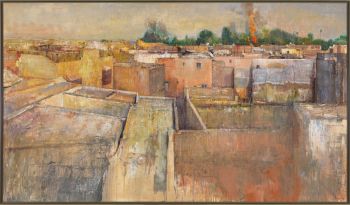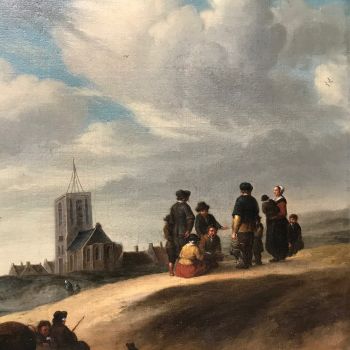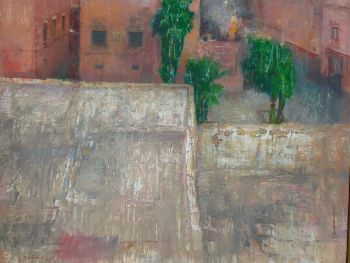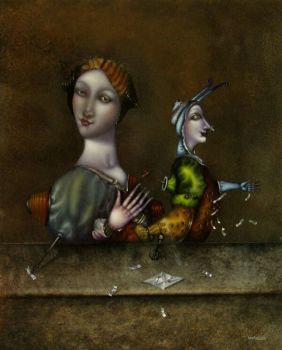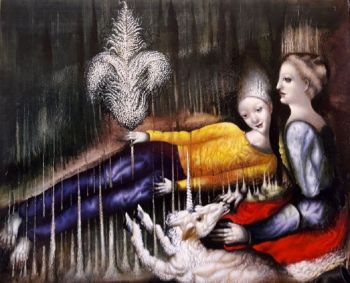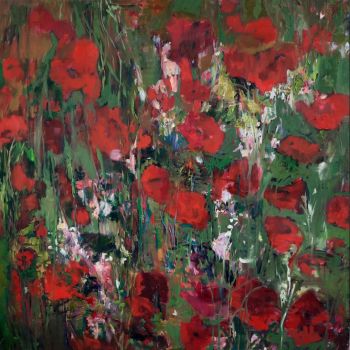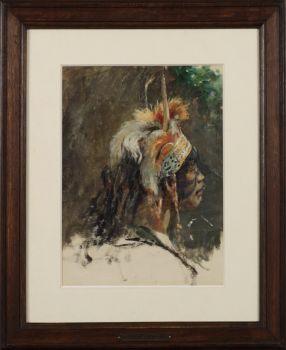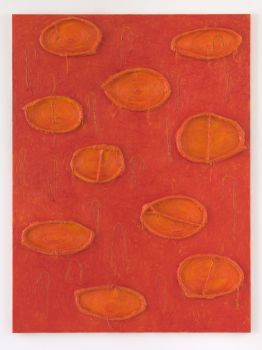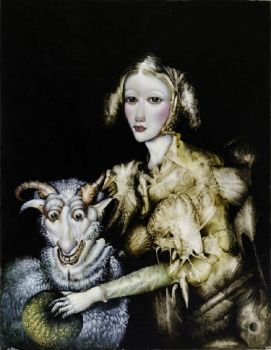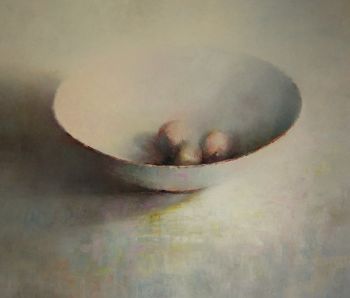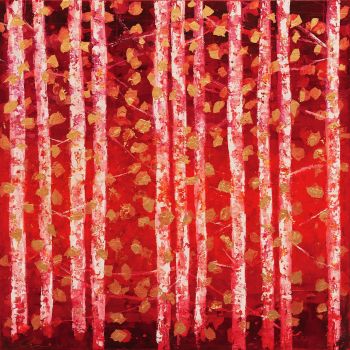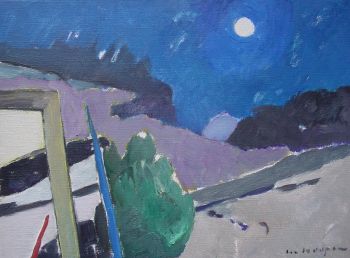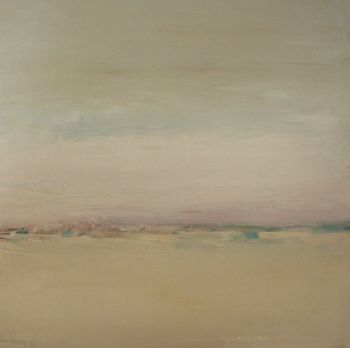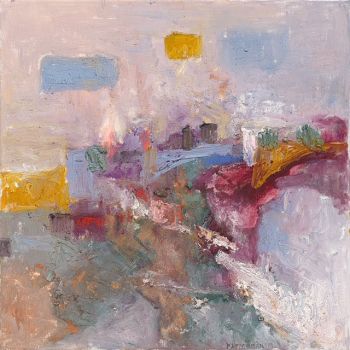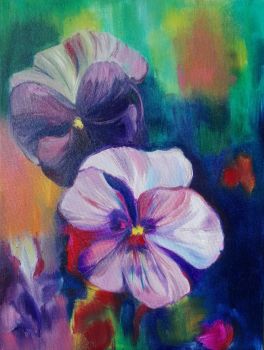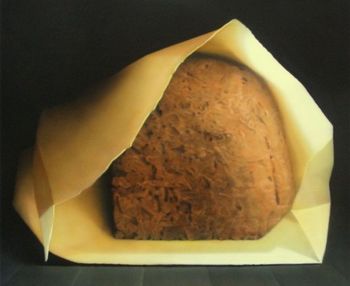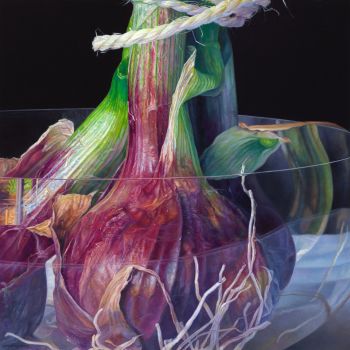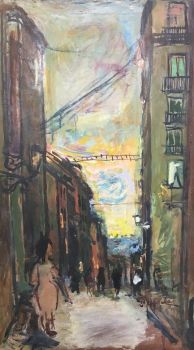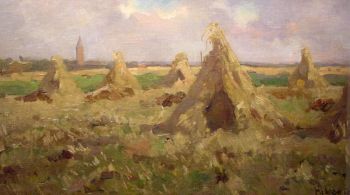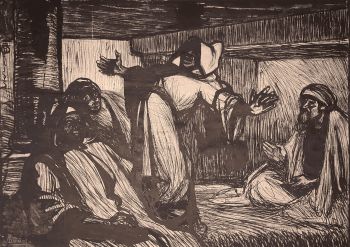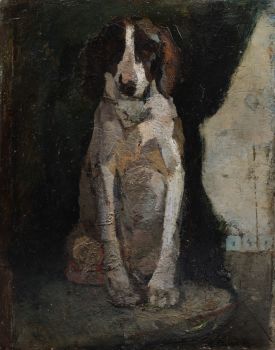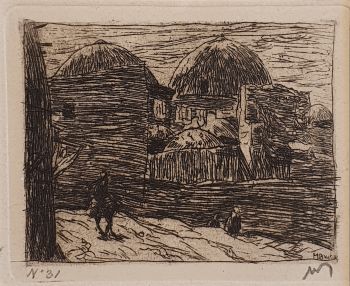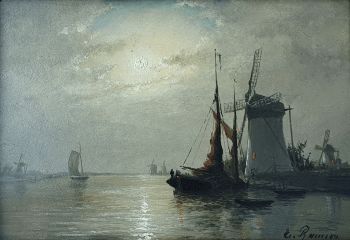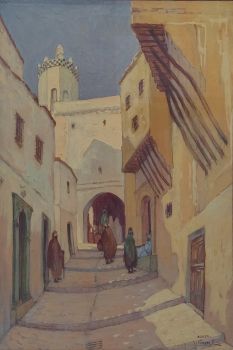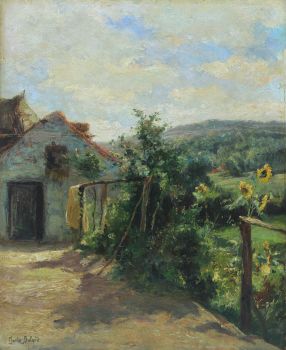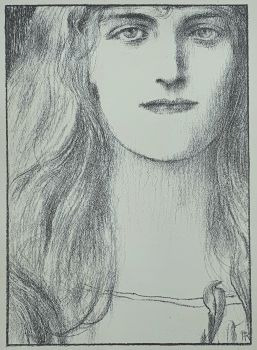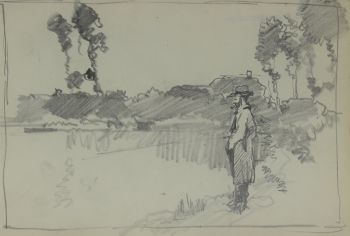Farm near Kralingen – Boerderij bij Kralingen 1916
Rodolphe Paul Wytsman
Pintura a óleoPainelPintar
27.10 ⨯ 36 cm
ConditionExcellent
€ 3.750
Klooster Fine Art
- Sobre arte[EN]
Rodolphe Wytsman (1860-1927) stayed in The Netherlands between 1914 and 1918, to escape the terrors of the First World War. Together with his wife, Juliette, Rodolphe was one of the central figures in the group of Belgian refugee artists. He continued painting, taking up some typically Dutch landscapes like this view on a farm near the village of Kralingen (near Rotterdam). His Luminist version of Impressionism shows here in the way he depicted the flowers in the garden, and the (reflection of) the row boat in the middle of the image. Throughout this painting he used a varying brushstroke, adapting shape, direction and the thickness of the paint layer to the effect he wanted to convey.
[NL]
Rodolphe Wytsman (1860-1927) verbleef tussen 1914 en 1918 in Nederland, om het strijdgeweld van de Eerste Wereldoorlog te ontvluchten. Samen met zijn vrouw, Juliette, was Rodolphe een van de spilfiguren in de groep gevluchte Belgische vluchtelingen. Hij bleef in Nederland schilderen en hij nam het Nederlands landschap tot onderwerp, zoals deze boerderij bij Kralingen (bij Rotterdam). Zijn luministische variant van het impressionisme komt naar voren in de verbeeldde bloemen in de tuin, en de roeiboot en reflectie midden in beeld. Door het hele schilderij gebruikte hij een gevarieerde penseelstreek, waarbij hij vorm, richting en dikte van de verflaag aanwendde om het beoogd effect te verkrijgen. - Sobre artista
Rodolphe Paul Wytsman (1860, Dendermonde – Linkebeek, 1927), também escrito Rodolf Paul Wijtsman, foi um pintor belga.
Estudou com Jean Capeinick na Academie voor Beeldende Kunst (Academia de Belas Artes) em Gante. Posteriormente, estudou na Académie Royale des Beaux-Arts (Academia Real de Belas Artes) de Bruxelas, onde tomou contacto com o círculo L’Essor, no qual participaram Henri Permeke, James Ensor e muitos outros artistas.
Em 1883, foi membro do Les Vingt por um ano. Em 1986, casou-se com Juliette Trulemans, que também era pintora. Os temas de Wytsman são pinturas de gênero, paisagens e vistas da cidade.
Wytsman trabalha num estilo luminista e neo-impressionista. Expôs nos salões de Bruxelas, Antuérpia e Gante. Suas obras estão em muitos museus na Bélgica e no exterior, em Amsterdã, Antuérpia, Bruxelas, Buenos Aires, Tóquio, etc.
Viveu e trabalhou em muitos lugares, na Itália (1882-1883), Knokke, La Hulpe, Linkebeek (1892-1927). Durante a Primeira Guerra Mundial, Wytsman viveu na Holanda.
Você está interessado em comprar esta obra de arte?
Artwork details
Related artworks
- 1 - 4 / 24
Etienne Bosch
Cityview of Paris with the Notre Dame1883 - 1933
Precio a consultarKunsthandel Pygmalion
1 - 4 / 24Jean-François Rauzier
Balade D'Amsterdam 2 - Limited edition of 2 2015
Precio a consultarVilla del Arte Galleries
Willem van Konijnenburg
Landscape in Limburg, the south of the Netherlands1868 - 1943
Precio a consultarKunsthandel Pygmalion
Jean-François Rauzier
Veduta Amsterdam 2 - Limited edition of 82015
Precio a consultarVilla del Arte Galleries
1 - 4 / 24Chaya Kupperman
Bronwater II, no. 6, het buitenatelier Italia2019
Precio a consultarGalerie Het Noorderlicht
Etienne Bosch
Cityview of Paris with the Notre Dame1883 - 1933
Precio a consultarKunsthandel Pygmalion
1 - 4 / 24- 1 - 4 / 12

